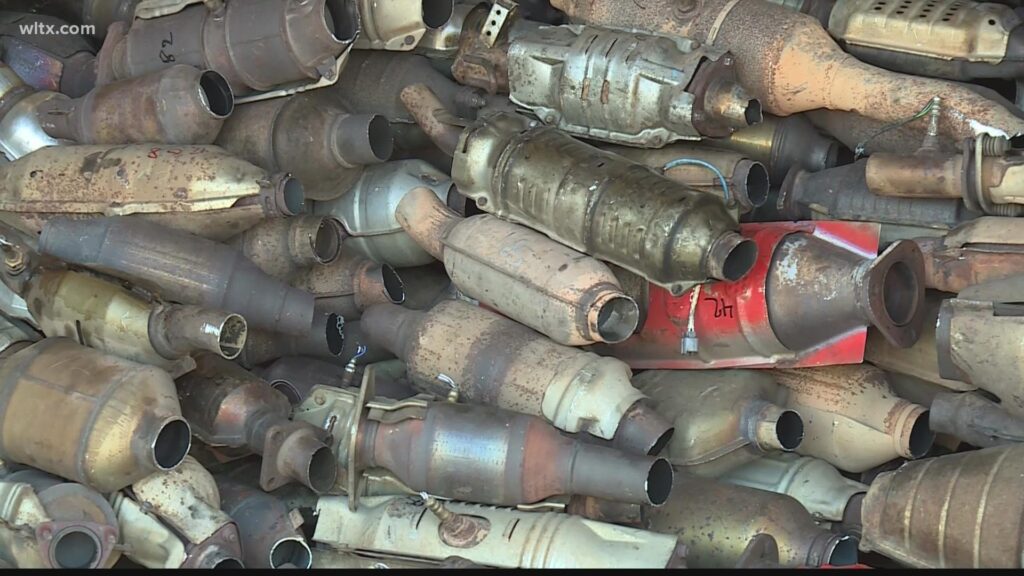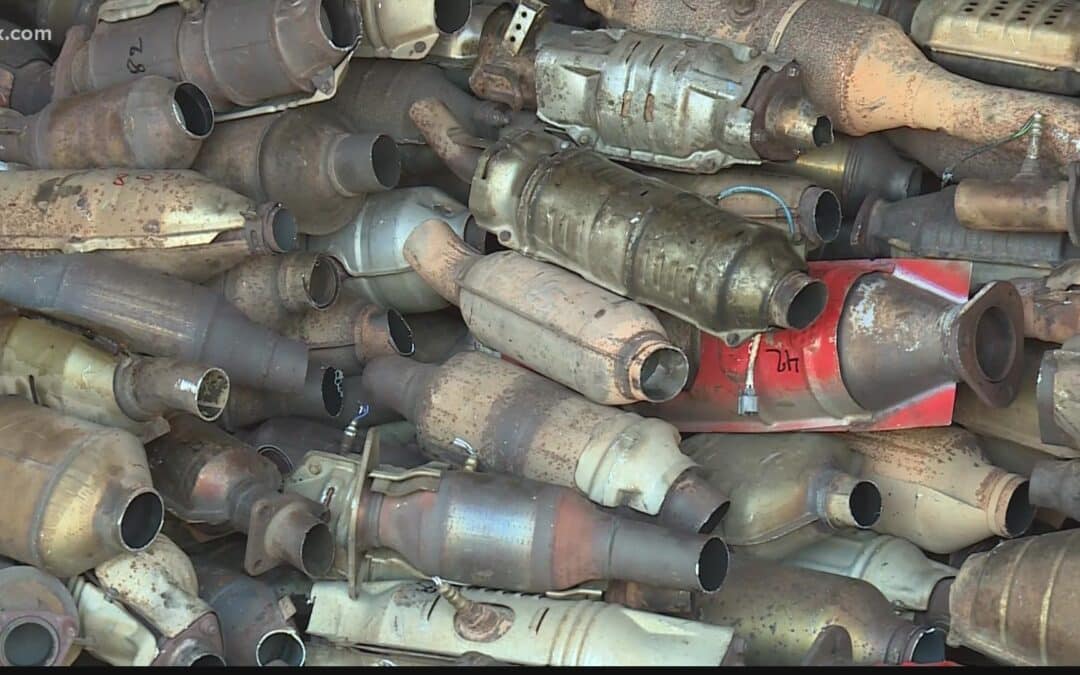
Catalytic converters are essential for modern vehicles designed to reduce harmful emissions. However, they also contain precious metals, making them a target for thieves looking to sell them for quick cash. In recent years, the theft of catalytic converters has increased dramatically, leaving vehicle owners with hefty repair bills and a sense of violation. In this article, we'll explore what catalytic converter theft is, why it's become so prevalent, and what you can do to deter it.
Introduction
Catalytic converter theft is a growing problem, not just affecting car owners. Vans, trucks, and SUVs are also targeted, and thieves can strike in broad daylight. According to the National Insurance Crime Bureau (NICB), catalytic converter thefts increased by 300% between 2018 and 2020, and the trend shows no signs of slowing down.
If you're a vehicle owner, it's essential to understand what catalytic converter theft is and how to prevent it. In this article, we'll explain everything you need to know about catalytic converter theft and provide practical tips to keep your vehicle safe.
What is a catalytic converter?
A catalytic converter is a device that converts harmful exhaust gases into less harmful emissions. It combines heat and chemicals to break down pollutants such as carbon monoxide and oxides of nitrogen. Catalytic converters are required by law in all vehicles sold in Canada and most other countries.
Catalytic converters contain precious metals such as platinum, palladium, and rhodium, which act as catalysts to speed up the chemical reactions that reduce emissions. These metals are valuable, making catalytic converters a target for thieves looking to sell them for scrap.
Why are catalytic converters being stolen?
The high value of precious metals is why catalytic converters are being stolen. The current prices of platinum, palladium, and rhodium are at all-time highs, making the metal inside catalytic converters more valuable than ever.
Another reason catalytic converter theft is on the rise is that the devices are relatively easy to remove. They are located underneath the vehicle and can be accessed with basic tools. Thieves can quickly cut the exhaust pipes and remove the converter in minutes.
How are catalytic converters stolen?
There are several ways that catalytic converters can be stolen. Thieves often use a saw or angle grinder to cut through the exhaust pipes and remove the converter. They may also unbolt the converter from the exhaust system or jack up the vehicle to gain better access.
Catalytic converter thefts are often opportunistic, with thieves targeting vehicles parked in secluded areas or poorly lit parking lots. However, some organized crime gangs also specialize in catalytic converter theft, using sophisticated tools and techniques to steal large numbers of converters at once.
Signs that your catalytic converter has been stolen
If your catalytic converter has been stolen, you'll notice a loud rumbling noise coming from your vehicle when you start it up. This is because the exhaust system will no longer be connected to the engine, and the sound will be much louder than usual.
Another sign that your catalytic converter has been stolen is if you notice that your vehicle's performance has decreased. This is because the engine will no longer be able to regulate emissions properly, and you may experience reduced power and acceleration.
How to prevent catalytic converter theft
There are several things you can do to prevent catalytic converter theft, including:
Park in well-lit areas
Thieves prefer to operate in the dark, so parking your vehicle in well-lit areas can deter them. If possible, park in a garage or a secure parking lot.
Install a catalytic converter lock.
Catalytic converter locks are designed to make it more difficult for thieves to steal your converter. They attach to the converter and require a special tool to remove them.
Etch your VIN on the converter.
Etching your vehicle identification number (VIN) on the catalytic converter can make it easier for law enforcement to identify it if it's stolen.
Install security cameras
Installing security cameras in your driveway or parking lot can deter thieves and provide evidence if a theft does occur.
Get a car alarm
A car alarm can alert you and others if someone tries to steal your catalytic converter. Make sure your alarm is loud enough to be heard from a distance.
What to do if your catalytic converter has been stolen
If your catalytic converter has been stolen, there are several things you should do:
- Call the police and file a report. Make sure to provide them with any information you have, such as the make and model of your vehicle and the license plate number.
- Contact your insurance company. Depending on your policy, your insurance may cover the cost of repairing or replacing your catalytic converter.
- Have your vehicle towed to a reputable mechanic at Albion Auto. They can inspect the damage and provide you with an estimate for the repair.
Conclusion
Catalytic converter theft is a growing problem that affects vehicle owners of all types. Thieves target these devices because they contain precious metals that can be sold for a quick profit. However, there are several things you can do to prevent catalytic converter theft, such as parking in well-lit areas, installing a catalytic converter lock, and etching your VIN on the converter. If your catalytic converter has been stolen, call the police, contact your insurance company, and have your vehicle towed to a reputable mechanic at Albion Auto.
FAQs
- Are all catalytic converters made of precious metals? Yes, all catalytic converters contain precious metals such as platinum, palladium, and rhodium.
- How much does it cost to replace a stolen catalytic converter? The cost of replacing a stolen catalytic converter can vary depending on the make and model of your vehicle, but it can range from several hundred to several thousand dollars.
- Can I drive my car without a catalytic converter? It's illegal to drive a vehicle without a functioning catalytic converter, and it can also damage your engine and exhaust system.
- Can I claim insurance for a stolen catalytic converter? Depending on your insurance policy, you may be able to claim insurance for a stolen catalytic converter.
- Can I install a new catalytic converter myself? Installing a new catalytic converter yourself is not recommended unless you have experience and knowledge of the process. Having a professional mechanic at Albion Auto handle the installation is best.

